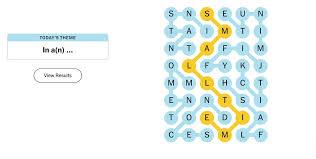Understanding NYT Crossword Clues: Tips and Insights

Introduction
The New York Times crossword puzzle has become a staple for puzzle enthusiasts and casual solvers alike. With its clever clues and intricate wordplay, it not only entertains but also offers cognitive benefits such as enhanced vocabulary and reasoning skills. As more people engage with this popular pastime, understanding the strategies behind solving NYT crossword clues has never been more relevant.
What Makes NYT Crossword Unique?
The NYT crossword, known for its rigorous standards, offers puzzles that vary in difficulty throughout the week. From easy Monday puzzles to the challenging Sunday edition, each crossword brings a fresh set of clues. What sets the NYT apart are its unique clues that often rely on puns, cultural references, and double meanings, making the puzzle not just a test of knowledge but also of wit.
Common Types of Clues
Understanding the different types of clues can greatly enhance a solver’s ability. Here are a few common categories:
- Fill-in-the-blank: These clues typically provide a straightforward answer, often comprising common phrases.
- Definition: This type of clue relies on a word’s meaning, asking the solver to identify synonyms or related words.
- Wordplay: This encompasses puns and tricks which might involve anagrams or mixed phrases that require lateral thinking.
- Abbreviations: Many clues use abbreviations that can throw off solvers if they are not familiar.
Strategies for Solving
Many experts share their strategies for tackling the NYT crossword puzzles:
- Start with the easy clues: Filling in the answers you know first can provide crucial letters to help with more difficult clues.
- Look for patterns: Familiarise yourself with common letter combinations and word structures.
- Stay updated on trends: Puzzles can reflect current events or popular culture, so being well-informed can be an asset.
- Practice regularly: Like any skill, regular practice can improve your solving speed and efficiency.
Conclusion
The NYT crossword puzzle remains a beloved challenge for many, offering not just entertainment but also a way to sharpen cognitive skills. Understanding its unique clues and adopting effective solving strategies can make the experience more enjoyable. As puzzlers continue to engage with this literary art form, the significance of mastering clues will undoubtedly enrich their solving journey, fostering both community and personal growth in the process.
